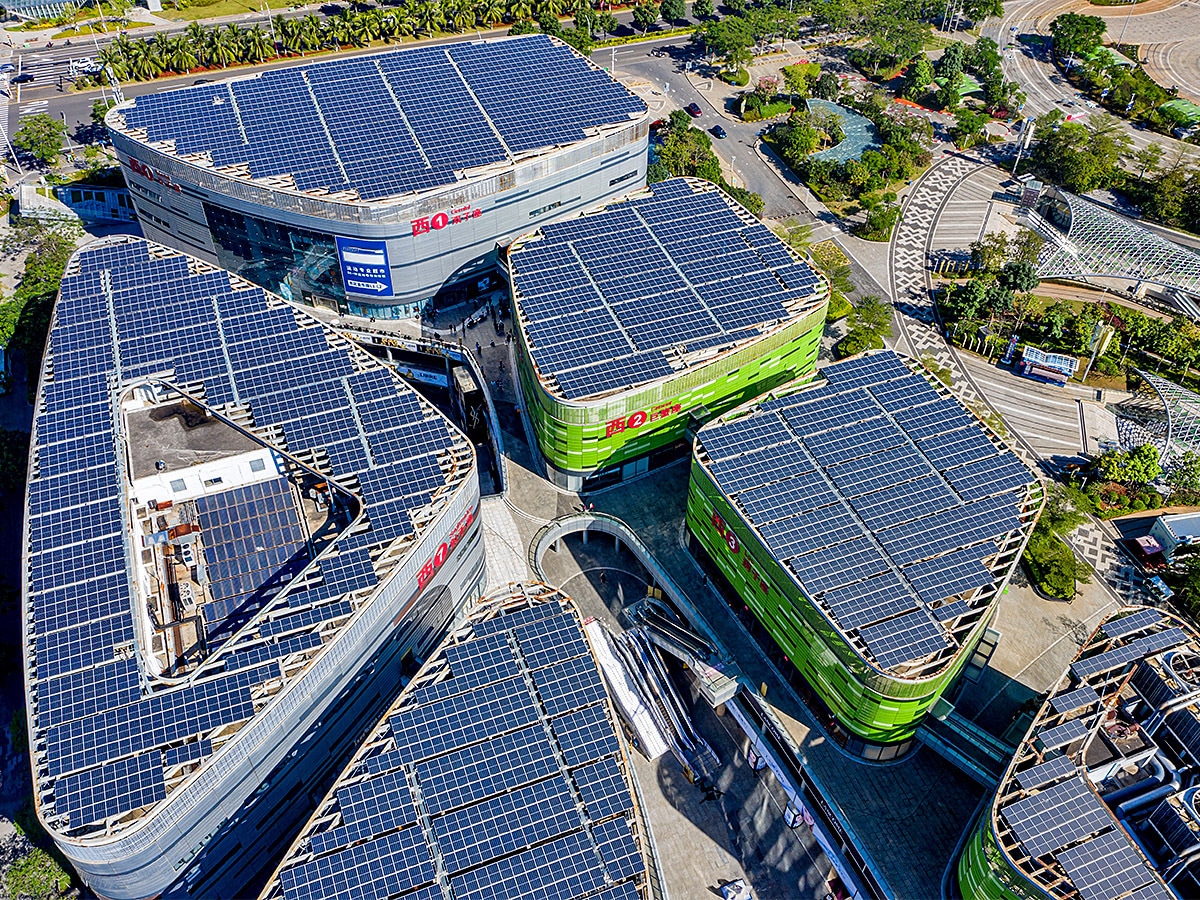Data from the Energy & Climate Intelligence Unit shows that renewable energy, particularly solar, wind and hydro power, overtook natural gas as the leading power source over the winter. Mild weather in the US has led to a slide in natural gas prices, as demand for fossil fuels falls and inventories increase on both sides of the Atlantic.
- Renewable energy became the UK’s primary source of power this winter.
- Natural gas prices have fallen in the US and Europe as demand wanes.
- HANetf launches Sprott Energy Transition Materials UCITS ETF.
Renewable energy, particularly hydro, solar and wind, overtook natural gas as the primary source of electricity in the UK this winter, according to analysis by the Energy and Climate Intelligence Unit (ECIU).
The news is a tailwind for companies like Ørsted [ORSTED.CO], Iberdrola [IBE.MC] and SSE [SSE.L]. Ørsted, which operates 13 wind farms in the UK with a capacity of 6.2GW, has seen its shares gain 3% between 1 October and 13 January — the period that the analysis covers.
Meanwhile, shares in SSE, which has a hydropower portfolio of 1,459MW, and Iberdrola, which increased its market share of the UK’s solar market from 2% to 9% last year, have grown 7.8% and 14% respectively over the same period.
The ECIU found that generating the same amount of energy from gas-fired power stations would have required 68TWh of gas, meaning renewables displaced the equivalent of 25% of the UK’s annual gas demand over the winter. The WisdomTree Natural Gas ETF [NGAS] is down 39.7% year-to-date and 44.9% over the past 12 months.
In the US, mild weather also sent natural gas stocks tumbling as prices for the commodity fell. Leading US gas producer EQT Corporation's [EQT] share price fell 8.1% in the week ending on 6 March on news that weather in the US would warm throughout the month. Natural gas futures fell 14.6% on the day of the news.
On a 9 March conference call, EQT said that the oversupply will likely last until the end of the year, which could prompt EQT or other producers to reduce their production volumes. US natural gas prices hit their highest levels for 14 years in 2022, but fell over 45% in 2023 to mid-February.
A climate of transition
With renewables having already overtaken natural gas in the UK, the global energy transition is well underway.
John Ciampaglia, CEO of Sprott Asset Management, sees big investment opportunities in the trend. “If you think about what we we're doing for energy 200 years ago,” he told Opto, “we were burning wood, and then we discovered we could burn coal, and then we could burn oil, and we could burn natural gas. Each time we saw a transition, it was a cleaner form of energy”.
Over the last 50 years, says Ciampaglia, the development of solar and wind power has continued that historical trend.
The opportunities aren’t just in the obvious places, such as solar stocks and EV battery producers. For Ciampaglia, a large part of the opportunity is in the commodities that underpin the transition, which he calls “critical minerals”.
Besides copper for transmission and lithium for storage, silver is another critical mineral for solar panels. “Many don’t know that about 10% of all the silver that gets produced in the world every year goes specifically for solar panels,” says Ciampaglia.
Shares in Fresnillo [FRES.L], the world’s largest silver miner, are down 17.1% year-to-date, but up 6.5% over the past 12 months.
Funds in focus: Sprott Energy Transition Materials UCITS ETF
To capture the investment potential of the energy transition’s critical materials, Sprott is launching the Sprott Energy Transition Materials UCITS ETF [SETM] on the London Stock Exchange in partnership with HANetf on 14 March. The fund is launching in Germany on 16 March and Italy on 30 March.
The fund offers pure-play exposure to a range of critical minerals necessary for the global clean energy transition, which could require up to $4.2trn investment between 2026 and 2030, according to HANetf.
Tom Bailey, Head of ETF Research at HANetf, told Opto that the world is “moving from a carbon intensive to metal intensive economy due to the transition to net-zero. This will potentially have profound changes for the global economy.”
Bailey compares the impact of these changes, and the investment opportunity presented, to the advent of the motor car and consequent impact on oil stocks during the 20th century.
“The EV and renewable energy transition is kick-starting a similar raw material rush, with potential winners being the producers of the critical resources required for this.”
Disclaimer Past performance is not a reliable indicator of future results.
CMC Markets is an execution-only service provider. The material (whether or not it states any opinions) is for general information purposes only, and does not take into account your personal circumstances or objectives. Nothing in this material is (or should be considered to be) financial, investment or other advice on which reliance should be placed. No opinion given in the material constitutes a recommendation by CMC Markets or the author that any particular investment, security, transaction or investment strategy is suitable for any specific person.
The material has not been prepared in accordance with legal requirements designed to promote the independence of investment research. Although we are not specifically prevented from dealing before providing this material, we do not seek to take advantage of the material prior to its dissemination.
CMC Markets does not endorse or offer opinion on the trading strategies used by the author. Their trading strategies do not guarantee any return and CMC Markets shall not be held responsible for any loss that you may incur, either directly or indirectly, arising from any investment based on any information contained herein.
*Tax treatment depends on individual circumstances and can change or may differ in a jurisdiction other than the UK.
Continue reading for FREE
- Includes free newsletter updates, unsubscribe anytime. Privacy policy





